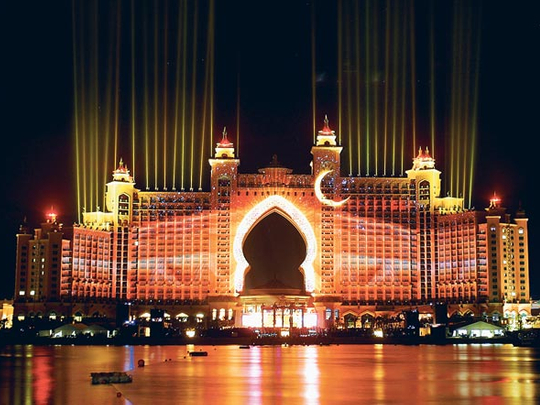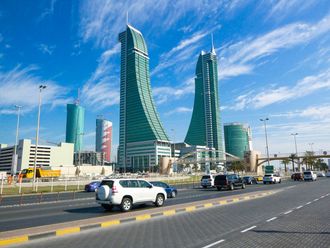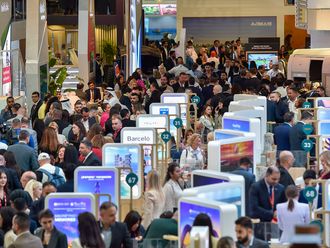
Dubai: Hotel star ratings have been adapting to an ever-changing tourism landscape, but experts have been wondering if they hide the real value of brands.
Dubai's Department of Tourism and Commerce Marketing (DTCM) last month said they were thinking of changing the criteria of the star-rating system for hotel standards.
This followed the Abu Dhabi Tourism Authority's move to expand its hotel classification system to recognise properties which may exceed five stars.
"Do we really need authorities to give us stars and what is the cost of adhering to the star rating system?" asked Hilton Worldwide Middle East and Africa president Jean-Paul Herzog.
"We're driven to a cookie cutter mode we don't want.
"Could it be better to tell a hotel's story with stars or the brand?"
The five-star rating for hotels was invented 50 years ago. Recently the travel industry has been querying its relevance for today's standards.
Layia Hospitality CEO Daniel Hajjar called for an independent global body such as the World Tourism Organisation to come up with a uniform international set of classifications.
Hajjar lamented that three-star hotels didn't want to admit to their rating, fearing that travellers perceived a three-star rating wasn't good.
"What makes me sad is that everyone wants to be in the rating system because of egos, thinking they are the best," Hajjar said.
Confusion stemmed from the fact unbranded hotels needed stars more than their branded counterparts.
And the latter often chose to "hide" their stars behind the brand — sometimes due to a country's rating system.
Herzog said in some countries five-star hotels had to pay higher taxes, which acted as a disincentive. "In some countries star ratings are nonsense," Herzog said.
"Systems vary greatly and the promises a brand makes are often in conflict with local ratings so some of the big brands do not want to display their stars at all."
In the UAE, hotels have a separate rating system in each emirate.
Abu Dhabi, Dubai and Sharjah have been fine-tuning their ratings to suit the modern traveller, but hoteliers said the rating system could be tedious to satisfy.
"The star system creates a lot of aggravation, a lot of time and money trying to adhere to it when the brand distinction later makes the difference," Herzog said.
"Not to say that the star system is useless."
Branded hotels would rather go for a more simplified ratings system that the customer could more easily understand, he said.
"All people want to know is whether it is cheap, affordable or expensive," Herzog said.
"The brand can do the rest."
Hajjar pointed out that in the UAE, stars at the higher end still made sense.
Guests wanted to see something classified as luxury for example, although he agreed it was an emotional choice based on service rather than the facilities.
Hajjar welcomed the DTCM's programme to further classify same-star hotels into use and location.
However, hotel owners were confused about which star rating to aim for.
"Whether in Dubai or Abu Dhabi a lot of issues don't make sense, there are too many organisations contributing," he said.
"Why require a squash and tennis court at a business hotel in a central location, for example."
A case in point was the number of baths needed per star, as per the 2008 draft classification.
Some traders, rated two stars due to the number of baths, considered themselves four star.
John Podaras, associate director at TRI Hospitality Consulting believed this requirement hadn't changed and made little sense when in other countries customers had come to accept showers at the same brand.
"I get fed up with owners who want to build the more stars the better," Podaras said.
"At the bottom it is the reverse. The existing standardised classification criteria is too much."
Hajjar said the real fun started when it was time to get approval from the authorities.
The free zones and Dubai Municipality had one set of requirements, which could directly contradict the Dubai Tourism and Commerce and Marketing programme.
"The DTCM should have an engineer on board of a hotel project from the start and not come at the end to look at the completed hotel," Hajjar said.
"We've been asked to change the walls as late as a day before opening."
Seven star rating
Herzog queried the definition of a seven-star rating. "It's a ridiculous name," he said. "It doesn't exist.
"There is no basis for that anywhere in the world."
Under the new Dubai Department of Tourism and Commerce Marketing ratings, seven stars won't exist.
Instead, five-star hotels have been divided into platinum, gold and silver categories. It also rates accommodation in categories including business, leisure, boutique beach, city, and desert locations.
Podaras said the gold, platinum and silver gradings were a bit over-ambitious.
"Classifications can only look at physical quality and staff," he said.
"It is extremely difficult going into the details after that. It makes a great deal of sense though separating the hotels into business, beach, and desert."
However hoteliers agreed an independent regulatory authority was needed to stop a hotel from giving a false impression.
But the brand standards had enough experience to know what the customer wanted, to create a destination within a country, Podaras added.
"It is their lifestyle brands creating excitement here," Podaras said.
"So maybe a classification system runs the danger of stifling creativity."












